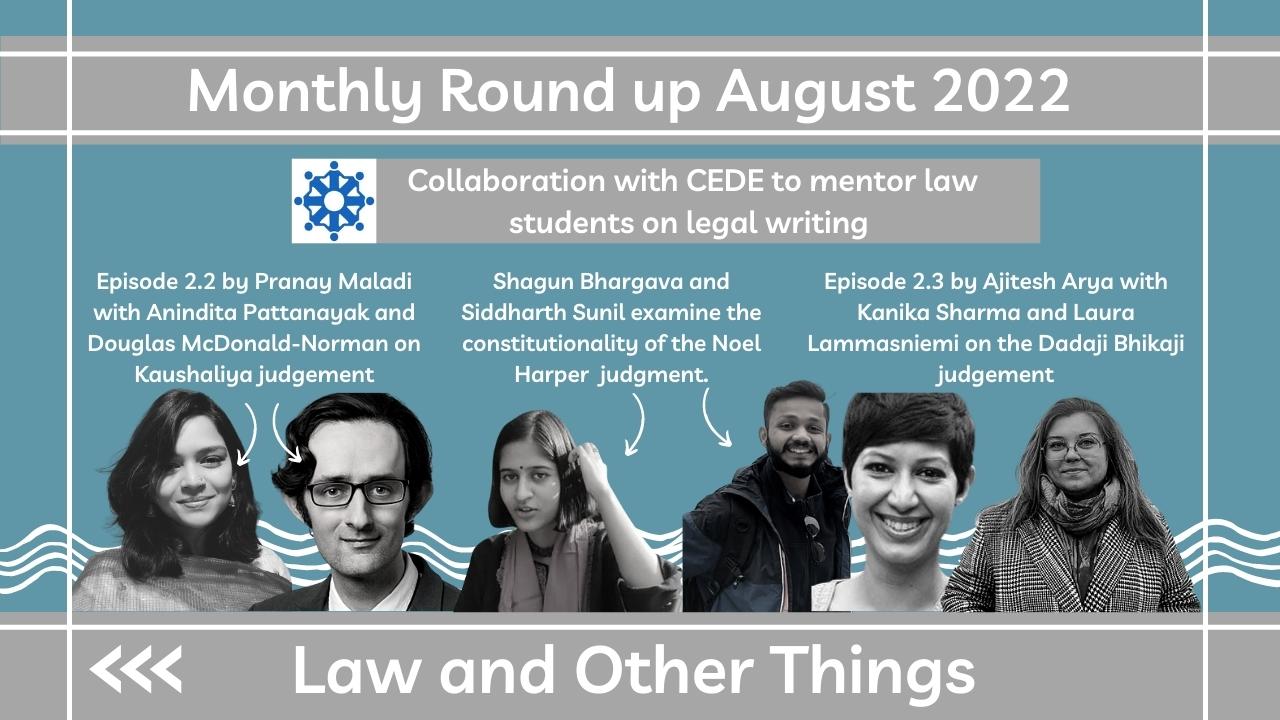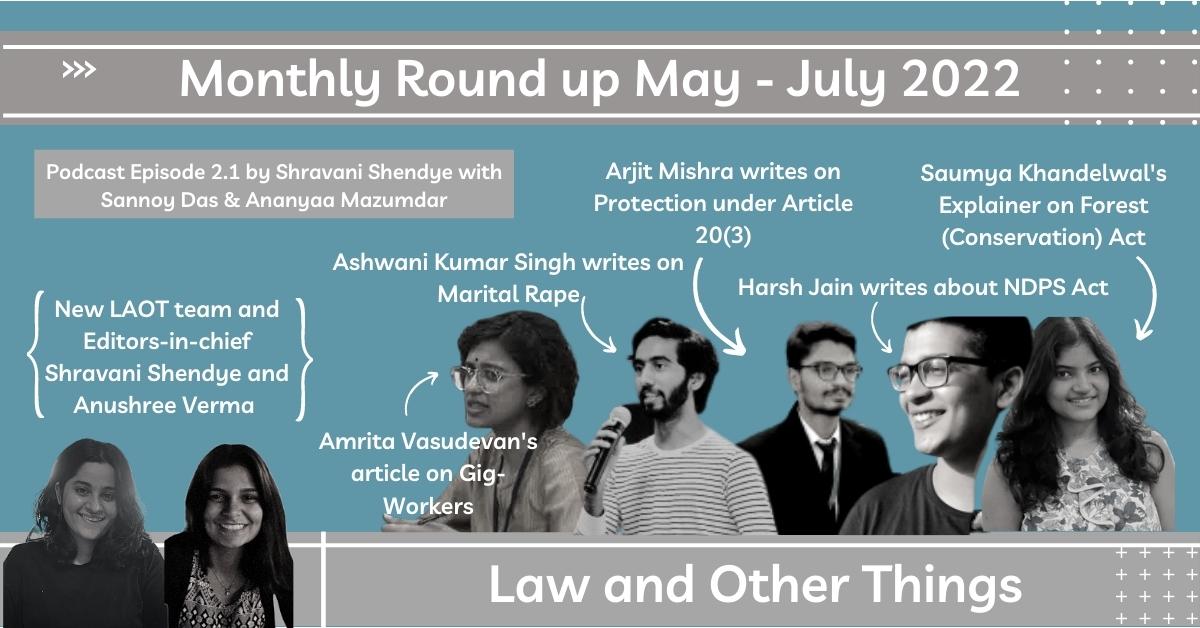In the month of August 2021 we welcomed new members to our LAOT Team. In addition to DGV Rithvik, we had Anushri Bhuta and Suhani Paruvelly join us as Technical Editors, and Natasha Singh and Yashaswini Santuka as Social Media Editors. Also joining our team are Nitya Ravichandran and Shanthan Reddy as Senior Analysts, and Harsh Jain, Mrityunjoy Roy, and Saumya Khandelwal as Associate Analysts.
This month, we published a range of articles & discussions. Below, we bring you an update on the Blog’s activities over the month of August 2021.
Blog Posts
We started off with Kavya Arora’s article titled Education Rights Trust v. Government of Karnataka: Need to Prevent Legislature from Diluting the Spirit and Object of the RTE Act, which argues that Rule 12(2) of the Karnataka Education Rules dilutes the spirit of the RTE Act. This was followed by the piece titled Decrypting Rule 4(2) written by Ankush Rai, which analyzes Rule 4(2) of the new IT Rules 2021 by focussing on the rule and the press release issued by the Government of India on it. Next, our editors Pranjal Gautam and Shravani Shendye brought you a Reading List on Pegasus Controversy. We also had Tanmay Malik evaluate the legality of mandatory vaccination in light of recent judicial orders by Indian Courts in the piece titled Compulsory Vaccination Dilemma. This was followed by Rishika R’s piece about the Regulatory Implications of the Electricity (Amendment) Bill, 2021, which discusses the Bill’s implications on the electricity sector’s federal structure and how Delhi’s centralised authority can disincentive renewable energy generation by making contract enforcement out of reach.
New Scholarship
In the New Scholarship section, we bring you recently published scholarship in the area of public law with engaging discussions surrounding some of them.
This month we continued our discussion on Prof. Upendra Baxi’s article titled Human Rights in the Administration of Criminal Justice: The Concept of Fair Trial. We published a response written by Prof. Jinee Lokaneeta titled Human Rights as Jural Postulates: A Vision for CJS. Prof. Lokaneeta focuses on commandments like the freedom from torture and right to counsel during interrogations, and notes that Baxi’s essay is a plea to actors to consider these jural postulates not just at the level of everyday practice as tactics or strategies but remind one of the centralities of these human rights as the very basis of a rule of a law-based system.
This was followed by Ameya Bokil’s response titled Fair Trial in the Times of Tyranny?: A Case for Abolition, which has been written from a human rights skeptic and abolitionist perspective. He lists out a few recent events to ask what it would take for critical scholars to be less hopeful about human rights. Ameya defines the CJS as a system of colonial and casteist social control, relying on systematic criminalisation, incarceration and exploitation of the labour of certain communities to protect the Brahmanical, Patriarchal, Capitalist and Colonial social order. He concludes by asking us to abandon this false hope that this system is fixable without dealing with ‘constitutive violence’.
We also continued our discussion on Volume 9 of the Indian Journal of Constitutional Law. Devdutta Mukhopadhyay provided us a summary of her co-authored paper with Apar Gupta titled ‘Jammu & Kashmir Internet Restrictions Cases: A Missed Opportunity to Redefine Fundamental Rights in the Digital Age’, which discusses the Supreme Court’s judgements relating to internet restrictions imposed in Jammu & Kashmir.
You can sign up for our Monthly Newsletter here or follow us on Facebook, LinkedIn, Twitter or Instagram.





Can you be more specific about the content of your article? After reading it, I still have some doubts. Hope you can help me.
Your point of view caught my eye and was very interesting. Thanks. I have a question for you.
Your point of view caught my eye and was very interesting. Thanks. I have a question for you.
Your article helped me a lot, is there any more related content? Thanks!